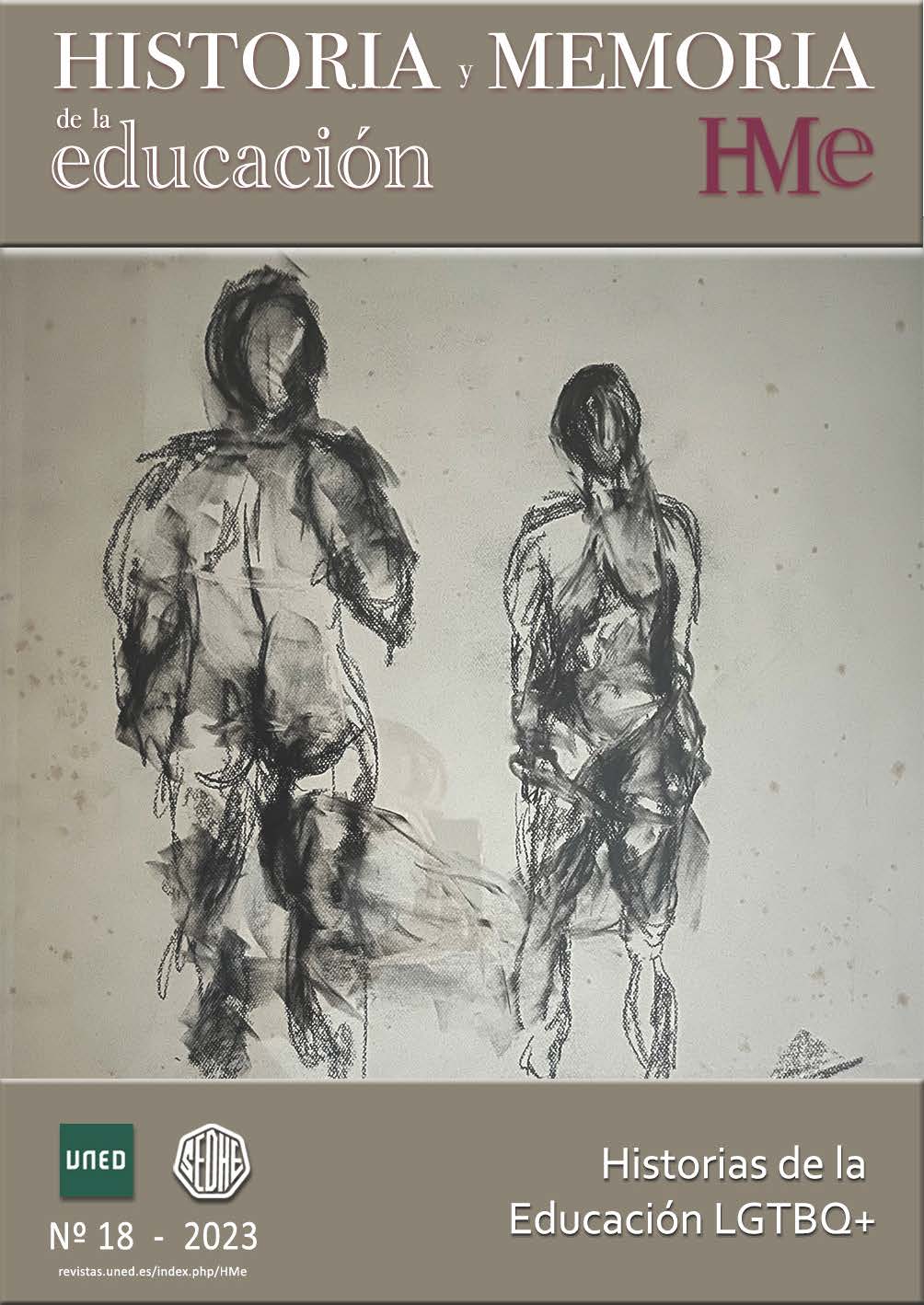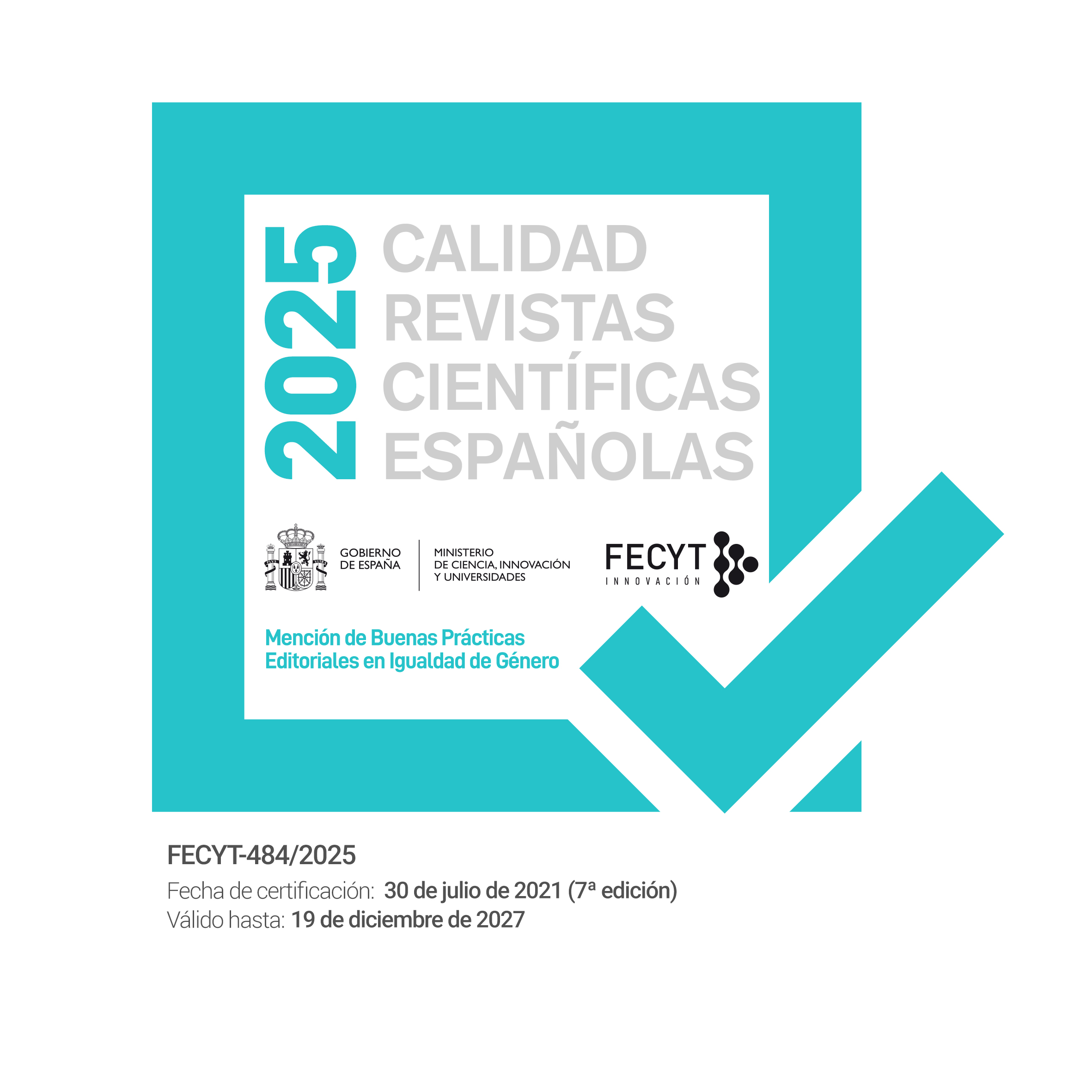Education and citizenship in Alexis de Tocqueville
DOI:
https://doi.org/10.5944/hme.18.2023.34121Keywords:
Alexis de Tocqueville; democracy; education; gender; citizenship.Abstract
Education, to Alexis de Tocqueville, constitutes a fundamental tool for counteracting the inherent risks of individualism in democratic societies. Given the loss of social connections, the objective of education is to forge strong civic identities and to encourage active participation in the social fabric.
Tocqueville considers essential for the maintenance of liberal democracy an education for freedom that cultivates the intellectual and moral capacities of men and women alike. At the same time, being a staunch advocate of a harsh sexual division of labor, he would have women locked within the narrow confines of the home.
At the same time, Tocqueville’s approach to education enables a perspective that goes beyond neoliberal interpretations of his thinking. On the one hand, equality does not appear as a threat to freedom, but, on the contrary, it helps to construct fair political and social organization that allows the free development of individuals while facilitating social solidarity and fostering material and intellectual progress. At the same time, the state plays a major role through its responsibility for defining and implementing an educational policy that contributes to forming a populace that is freer, more critical and less subject to inequalities.
Therefore, Tocqueville is not a standard liberal. He considers it necessary for the state to intervene in the educational, social and economic fields. The state must ensure solidarity with a view towards general interest and, at the same time, foster the protagonism of civil society. And all this, in and from a position of freedom.
Downloads
References
Aguilar, Enrique. Alexis de Tocqueville. Una lectura introductoria. Buenos Aires: Sudamericana, 2008.
Albertos San José, Aránzazu. La educación del ciudadano democrático. Pamplona: EUNSA, 2011.
Beck, Ulrich. «Los padres de la libertad». En Los hijos de la libertad, compilado por Ulrich Beck, 309-360. Buenos Aires: Fondo de Cultura Económica, 1999.
Blits, Jan H. «Tocqueville on democratic education: The problem of public passivity». Educational Theory 47, no. 1 (2005): 15-30.
Boesche, Roger. «Hedonism and Nihilism: The Predictions of Tocqueville and Nietzsche». The Tocqueville Review/ La Revue Tocqueville 8, (1987-1987): 165-184.
Carrión Morillo, David. La libertad política en el estado social. Madrid: Delta, 2009.
Connolley, Steven y Hausstätter, Rune S. «Tocqueville on democracy and inclusive education: A more ardent and enduring love of equality than of liberty». European Journal of Special Needs Education 24, no. 3 (2009): 231-243.
Chabot, Sonia. «Education civique, instruction publique et liberté de l’enseignement dans l’oeuvre de Tocqueville». En Tocqueville et l’esprit de la démocratie, compilado por Laurence Guellec, 241-293.París: Presses de la Fondation Nationale des Sciences Politiques, 2005.
Dubet, François. El declive de la institución. Barcelona: Gedisa, 2006.
Foster, Luke. «Tocqueville on the Mixed Blessing of Liberal Learning: Higher Education as Subversive Antidote». En Exploring the Social and Political Economy of Alexis de Tocqueville, editado por Peter J. Boettke y Adam Martin, 63-82. London, New York: Palgrave Macmillan, 2020.
Foster, Luke. «Can the Great Books Serve the Common Good? Tocqueville on Aristocratic Education in a Democratic Age». The Tocqueville Review/ La Revue Tocqueville 43, no. 1 (2022): 181-201.
Guellec, Laurence. Tocqueville et l’esprit de la démocratie.París: Presses de la Fondation Nationale des Sciences Politiques, 2005.
Heimonet, Jean-Michel. Tocqueville et le devenir de la démocratie. La perversion de l’idéal. París: L’Harmattan, 1999.
Hunt Botting, Eileen. «A Family Resemblance. Tocqueville and Wollstonecraftian Protofeminism». En Feminist Interpretations of Alexis de Tocqueville, compilado por Jill Locke y Eileen Hunt Botting, 99-124. Pennsylvania: The Pennsylvania State University Press, 2009.
Jaeger, Werner. Paideia: los ideales de la cultura griega. México: F. C. E., 2008.
Kahan, Alan S. «Tocqueville and Liberal Education». The Tocqueville Review/ La Revue Tocqueville 34, no. 2 (2013): 159-168.
Lefort, Claude (1992). Écrire. À l’épreuve du politique. París: Calmann-Lévy, 1992.
Mélonio, Françoise. Alexis de Tocqueville. París: Ministère des Affaires étrangères, 2007.
Meuwly, Oliver. Liberté et société. Constant et Tocqueville face aux limites du libéralisme moderne. Ginebra: Librairie Droz, 2002.
Nola, Eduardo. «Introducción del editor». En La democracia en América. Edición crítica I, Alexis de Tocqueville, XXV-LXXXV. Madrid: Aguilar, 1989.
Roldán, Dario. Lecturas de Tocqueville. Madrid: siglo XXI, 2007.
Roviello, Anne. «La démocratie selon Tocqueville: entre pente naturelle et art de la liberté». En Tocqueville. La démocratie en questions, editado por Robert Legros, 41-65. Caen: Presses universitaires de Caen, 2008.
Serrano, Enrique. «Prefacio». En El Antiguo Régimen y la Revolución, Alexis de Tocqueville, 9-46. México: F. C. E., 1998.
Tocqueville, Alexis de. Memoria sobre el pauperismo. Madrid: Tecnos, 2003.
Tocqueville, Alexis de. Lettres Choisies. Souvenirs. París: Quarto Gallimard, 2002.
Tocqueville, Alexis de. Correspondance familiale. Oeuvres Complètes. XIV. París: Gallimard, 1998.
Tocqueville, Alexis de. La democracia en América. Edición crítica II. Madrid: Aguilar, 1989.
Tocqueville, Alexis de. Correspondance étrangère. Œuvres complètes, VII. París: Gallimard, 1986.
Tocqueville, Alexis de. Écrits et discours politiques. Œuvres Complètes, III (2). París: Gallimard, 1985.
Tocqueville, Alexis de. Ecrits sur le système pénitentiaire en France et à l’étranger. Œuvres Complètes, IV (1). París: Gallimard, 1984.
Tocqueville, Alexis de. Correspondance d’Alexis de Tocqueville et de Louis de Kergorlay. Oeuvres Complètes, XIII (1). París: Gallimard, 1977 .
Tocqueville, Alexis de. De la Démocratie en Amérique. Œuvres complètes, I (1 y 2). París: Gallimard, 1961.
Tocqueville, Alexis de. Voyages en Sicile et aux États-Unis. Œuvres complètes, V (1). París: Gallimard, 1957.
Tocqueville, Alexis de. L’Ancien Régime et la Révolution. Œuvres complètes, II (1 y 2). París: Gallimard, 1952.
Tocqueville, Alexis de. Œuvres complètes publiées par Madame de Tocqueville, VII. París: Michel Lévy frères, 1866.
Usategui, Elisa. «Comunidad y género en Alexis de Tocqueville». Revista de Estudios Políticos 121 (2003): 71-106.
Villa, Dana R. Teachers of the People: Political Education in Rousseau, Hegel, Tocqueville and Mill. Chicago: University of Chicago Press, 2019.
Downloads
Published
How to Cite
Issue
Section
License
Copyright (c) 2023 Historia y Memoria de la Educación

This work is licensed under a Creative Commons Attribution-NonCommercial 4.0 International License.
Authors who publish in Historia y Memoria de la Educación agree to the following terms:
- Authors retain copyright and grant the journal right of first publication with the work simultaneously licensed under a Creative Commons Attribution-NonCommercial 4.0 International that allows others to share the work with an acknowledgement of the work's authorship and initial publication in this journal.
- Authors are able to enter into separate, additional contractual arrangements for the non-exclusive distribution of the journal's published version of the work (e.g., post it to an institutional repository or publish it in a book), with an acknowledgement of its initial publication in this journal.
- Authors are permitted and encouraged to post their work online (e.g., in institutional repositories or on their website) prior to and during the submission process, as it can lead to productive exchanges, as well as earlier and greater citation of published work (See The Effect of Open Access).












